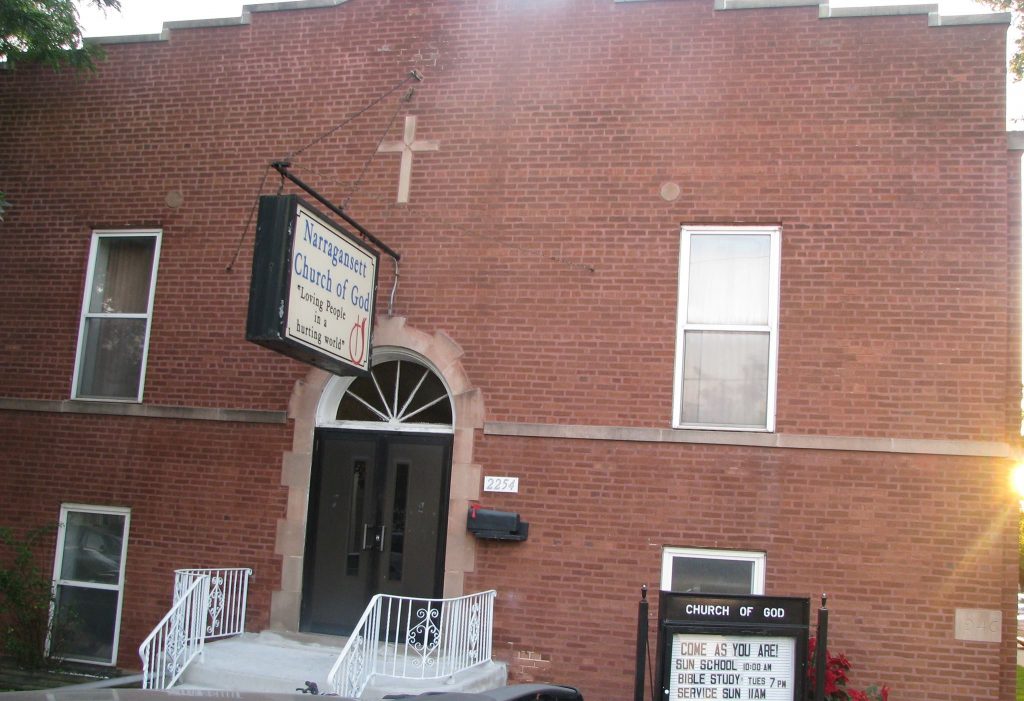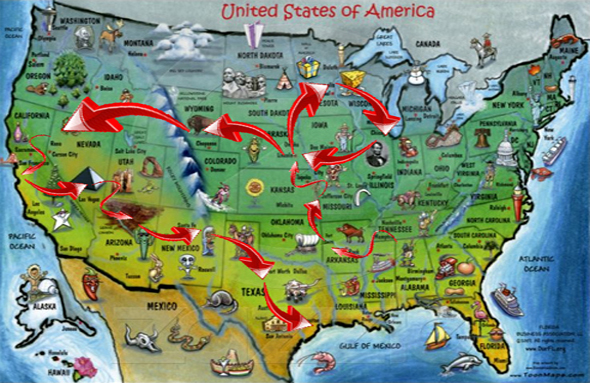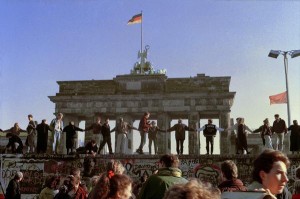37 Years after Communism…
The Fall of the Berlin Wall was on the evening of November 9, 1989

37 years in 60 seconds at the red-light…
I’m driving slowly in the dark and raining streets of my home town passing through clouds of car smoke. The gypsy ghetto in the outskirts of town is covered with the fog of fires made out of old tires burning in the yards. And the loud music adds that grotesque and gothic nuance to the whole picture with poorly clothed children dancing around the burnings.
The first red light stops me at the entrance to the “more civilized” part of the city. The bright counter right next to it slowly moves through the long 60 seconds while tiredly walking people pass through the intersection to go home and escape the cold rain. The street ahead of me is already covered with dirt and thickening layer of sleet.
This is how I remember Bulgaria of my youth and it seems like nothing has changed in the past 30 years.
The newly elected government just announced its coalition cabinet – next to a dozen like it that had failed in the past two decades. The gas price is holding firmly at $6/gal. and the price of electricity just increased by 10%, while the harsh winter is already knocking at the doors of poor Bulgarian households. A major bank is in collapse threatening to take down the national banking system and create a new crisis much like in Greece. These are the same factors that caused Bulgaria’s major inflation in 1993 and then hyperinflation in 1996-97.
What’s next? Another winter and again a hard one!
Ex-secret police agents are in all three of the coalition parties forming the current government. The ultra nationalistic party called “ATTACK” and the Muslim ethnic minorities party DPS are out for now, but awaiting their move as opposition in the future parliament. At the same time, the new-old prime minister (now in his second term) is already calling for yet another early parliamentarian election in the summer. This is only months after the previous elections in October, 2014 and two years after the ones before them on May 2013.
Every Bulgarian government in the past 30 years has focused on two rather mechanical goals: cardinal socio-economical reforms and battle against communism. The latter is simply unachievable without deep reformative change within the Bulgarian post-communist mentality. The purpose of any reform should be to do exactly that. Instead, what is always changing is the outwardness of the country. The change is only mechanical, but never organic within the country’s heart.
Bulgaria’s mechanical reforms in the past quarter of a century have proven to be only conditional, but never improving the conditions of living. The wellbeing of the individual and the pursuit of happiness, thou much spoken about, are never reached for they never start with the desire to change within the person. For this reason, millions of Bulgarians and their children today work abroad, pursuing another life for another generation.
The stop light in front of me turns green bidding the question where to go next. Every Bulgarian today must make a choice! Or we’ll be still here at the red light in another 37 years from now…
ENTER 2026…
Celebrating 35 Years in Global Ministry
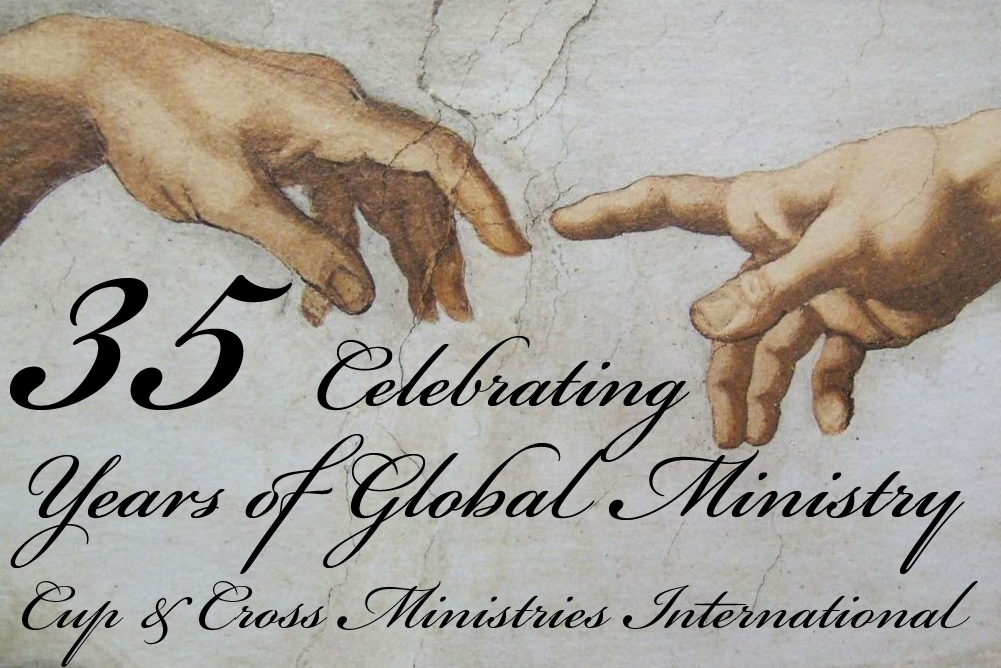
30 years ago in Chicago
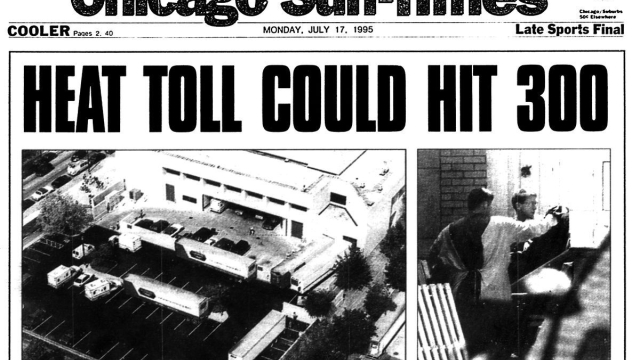
30 Years of the Bulgarian Church of God in Chicago
I left Chicago on this day 30 years ago (July 30, 1995). The Bulgarian church that day held service at 1 PM with 64 Bulgarians and many other internationals in attendance. Bulgarian students from the neighboring Indiana and Wisconsin attended as well. There was even a Bulgarian family from Alaska.
It was a Sunday. I left Chicago to preach in Beloit, WI that night and then left for Washington, D.C. the following morning. While driving north with quite the speed my Carolina blue Grand National began filling with white smoke. At first, I thought the air conditioner was on its last leg in the hot Chicago summer of 1995, but the air remained strong and cold. The cloud proceeded and it was so sensible that I had to slow down and basically stop on the side of the road. In my 35 years of ministry, I have only seen this one more time – in 2011 when the Glory of God descended over a youth camp we were preaching in the Bulgarian mountains. I did finally preach in Beloit and made it to D.C. the next day, but the vision of the cloud remained with me for the next 30 years.
Meanwhile, the word of mouth had spread and the Bulgarian church in Chicago was growing among the Bulgarian diaspora. On October 7, 1995, I was able to visit the church in Chicago again and present it to the National Overseer of the Bulgarian Church of God, Pastor Pavel Ignatov who visited the Bulgarian congregation in Chicago for the first time. By that time, it has become evident that the initial structuring for growth was giving more than expected results. The church became not only the first officially registered Bulgarian Pentecostal congregation in the United States, but also an important social and educational center able to minister to the 100,000 Bulgarians that live in the Great Lake region today.
Called to another mission, I left Chicago on July 30, 1995. The church bulletin upon my departure under Farewell and Appreciation read: “Today we are saying thank you to Dony for a job well done this past summer. He has served our church faithfully, and has been a tremendous blessing to Narragansett Ministries. Immediately following worship this morning, there is a dinner in Dony’s honor in the fellowship hall. And everyone is invited to attend.” Quiescently, while writing this next book for the 30th anniversary of the Bulgarian Church in Chicago, I was able to find this last bulletin in a box with several dozen letters I had sent weekly to my parents in Bulgaria. Surprising even to myself, those letters contain pictures, documents, dates, growth charts and progression predictions that are surprising even to me today. I remember spending countless nights in prayer, contemplating and strategizing over the new Bulgarian church plant, but I had forgotten all this was carefully documented as a case study.
The church congregation presented me with a plaque that represented my efforts and work in Chicago, which I have also kept until now. Because this plaque represents the prayers and the vision of many who are continuing the work today, establishing and leading Bulgarian churches around the world to providing pastoral care for many who have left the homeland in search for a better life. To these ministers goes my personal token of appreciation and thanks, “Well done thou good and faithful!” For me personally today a quarter of a century later, this plaque represents one very simply thing – I never betrayed my dreams. And in my book, this is well done…
30 Years of the Bulgarian Church of God in Chicago
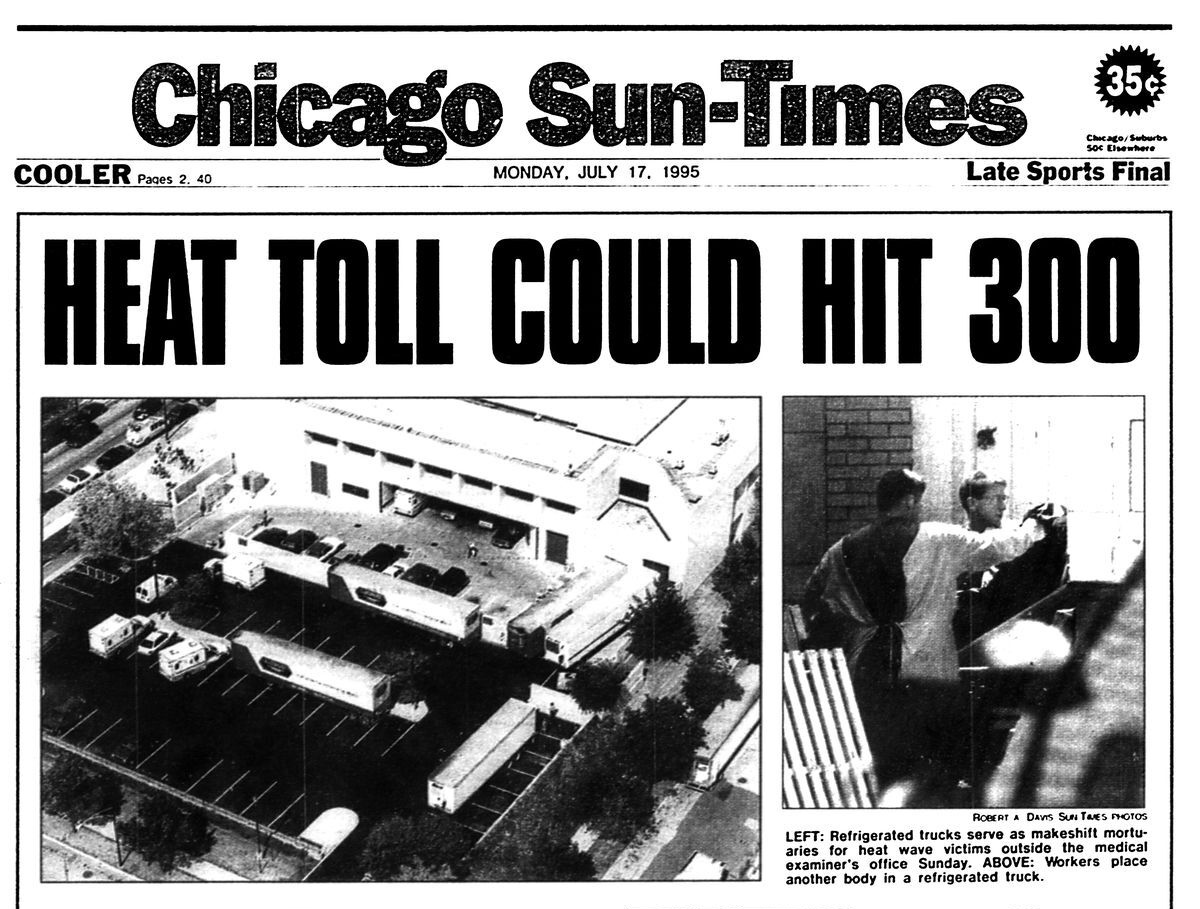
July 10, 2015 marks the 20th anniversary of the first service of the Bulgarian Church of God in Chicago in 1995.
We have told the Story of the first Bulgarian Church of God in the Untied States (read it here) on numerous occasions and it was a substantial part of our 2005 dissertation (published in 2012, see it here).
From my personal memories, the exact beginning was after Brave Heart opened in the summer of 1995 and the Narragansett Church of God closed the street for a 4th of July block party with BBQ, Chicago PD horsemen, a moonwalk and much more.
The first service in the Bulgarian vernacular was held Sunday afternoon, July 10th 1995 being the true anniversary of the Bulgarian Church in Chicago. Only about a dozen were present and the sermon I preached was from Hebrews 13:5. Unfortunately, to this day 20 years later, we cannot locate the pictures taken that day to identify those present. And some have already passed away.
Using a ministry model that later became a paradigm for starting Bulgarian churches in North America (see it in detail) the church grew to over 65 members in just a few weeks by the end of July. This was around the time the movie Judge Dread had opened and the first edition of Windows 95 was scheduled for release in Chicago. I saw them both at the mall on upper Harlem Boulevard.
The Bulgarian Church of God in Chicago followed a rich century-long tradition, which began with the establishing of Bulgarian churches and missions in 1907. (read the history) Consecutively, our 1995 Church Starting Paradigm was successfully used in various studies and models in 2003. The program was continuously improved in the following decade, proposing an effective model for leading and managing growing Bulgarian churches.
Based on the Gateway cities in North America and their relations to the Bulgarian communities across the continent, it proposed a prognosis toward establishing Bulgarian churches (see it here) and outlined the perimeters of their processes and dynamics in the near future (read in detail).
After a personal xlibris, the said prognosis were revisited in 2009 in relation to preliminary groundbreaking church work on the West Coast and then evaluated against the state of Bulgarian Churches in America at the 2014 Annual Conference in Minneapolis.
We’re yet to observe the factors and dynamics determining if Bulgarian churches across North America will follow their early 20th century predecessors to become absorbed in the local context or alike many other ethnic groups survive to form their own subculture in North America. We will know the answer for sure in another 30 years…

BibleTech or BUST: 15 Years Later
30 Years ago in Chicago…
Exactly 30 years ago today, I arrived in Chicago with a plan to start a Bulgarian church. That was my second trip to the Windy City after a mission’s trip with a few college friends in Christmas of 1994. The Narraganset Church of God in Chicago hosted us with great success and it was there I met several Bulgarians who desired to start a church. A key moment still remembered from 1994 was the “boot sermon.”
On Memorial Day weekend of 1995, I drove my Carolina baby blue Buick Grand National exactly 777 miles north to Chicago. It was still the time of no GPS or phone navigation so the only thing I had to go buy was an old atlas. Not knowing a better way just yet, I didn’t take the North-West Suburbs but exited on North Avenue and ended up driving its whole length through the city. On a warm Sunday the entire population of Wicker Park was in the streets. It was like in the movies. So was the rest of the Summer of 1995.
I had made little arrangements for my stay and ended up with a Bulgarian family living on Jackson Blvd. For the lack of space, I slept on an old couch on their balcony. Yes, during the Chicago heat wave of 1995.
I stayed with the pastor’s family a lot, especially when we started our 5 a.m. prayers in the church for members who would stop by to be prayed for before going to work. Some of those nights I just stayed at the church and slept on the first pew before the altar. It was there one early morning God woke me with the whole Gospel of John open before me, which later became the plan for my Bible translation.
As to the start of the Bulgarian church in Chicago, it came naturally as part of the ministry. The small band of Bulgarian believers would come for the English-speaking morning worship and then stay for a Bulgarian service in the early afternoon. A Spanish-speaking service followed at 4 P.M. as well. Several key events through the summer like the now-traditional Bulgarian 4th of July picnic in Chicago and a block party organized by the Narraganset Church of God helped spread the word of our Bulgarian ministry. Soon migrants of all ages began attending the afternoon services.
The most I remember from those services was prayer. Yes, I preached and there were guest speakers as well, but we mostly prayed. Bulgarians of all ages would come to the alter with their life pain and needs. Deep hurt within immigrant hearts, missing family members left behind in the old country, new struggles with work and existence in their new migrant reality and so on – all became a part of the new life of the Bulgarian church in Chicago. And those prayers were answered one by one. People did not come to attend or become members of a church plant project. They came and found answer to their prayers, direction in their lives and healing for their deep pain. Hidden from everyone else in Chicago, a river of pain flowed at those old church alters and a rain of healing, hope and peace filled the emptiness in those emigrant souls. That much I do still remember.
Through the whole summer as the Bulgarian church in Chicago began, I wrote my parents every Friday. Two regular stamps were what it took for a letter to get to Bulgaria back then. I would walk from the church on Narraganset across the street to Grand and drop the letter in a blue street U.S. mailbox. They all got to their destination. My dad had stored them all in an old shoe box after reading them, and I was able to find them all recently. They ain’t no diary, but still tell the story with details of each week of those humble beginnings. Along with the letters, there were a lot of pictures I had taken with my small 35mm. camera that looked more like a taser. The Metro, Sear’s Tower and under it where we ministered to the homeless, South Side and Cabrini Green, Rigley Field and Comiskey Park, McCormick and LSD. I only wish I had taken better notes now that I am writing this book. Times, places and faces are often mixed and sometimes lost in the timeline, but the story is far from forgotten. Now, a quarter of a century later, it is time to tell this story and tell it right… for the generations.
I left Chicago on this day 25 years ago (July 30, 1995). The Bulgarian church that day held service at 1 PM with 64 Bulgarians and many other internationals in attendance. Bulgarian students from the neighboring Indiana and Wisconsin attended as well. There was even a Bulgarian family from Alaska.
It was a Sunday. I left Chicago to preach in Beloit, WI that night and then left for Washington, D.C. the following morning. While driving north with quite the speed my Carolina blue Grand National began filling with white smoke. At first, I thought the air conditioner was on its last leg in the hot Chicago summer of 1995, but the air remained strong and cold. The cloud proceeded and it was so sensible that I had to slow down and basically stop on the side of the road. In my 30 years of ministry, I have only seen this one more time – in 2011 when the Glory of God descended over a youth camp we were preaching in the Bulgarian mountains. I did finally preach in Beloit and made it to D.C. the next day, but the vision of the cloud remained with me for the next 25 years.
Meanwhile, the word of mouth had spread and the Bulgarian church in Chicago was growing among the Bulgarian diaspora. On October 7, 1995, I was able to visit the church in Chicago again and present it to the National Overseer of the Bulgarian Church of God, Pastor Pavel Ignatov who visited the Bulgarian congregation in Chicago for the first time. By that time, it has become evident that the initial structuring for growth was giving more than expected results. The church became not only the first officially registered Bulgarian Pentecostal congregation in the United States, but also an important social and educational center able to minister to the 100,000 Bulgarians that live in the Great Lake region today.
Called to another mission, I left Chicago on July 30, 1995. The church bulletin upon my departure under Farewell and Appreciation read: “Today we are saying thank you to Dony for a job well done this past summer. He has served our church faithfully, and has been a tremendous blessing to Narragansett Ministries. Immediately following worship this morning, there is a dinner in Dony’s honor in the fellowship hall. And everyone is invited to attend.” Quiescently, while writing this next book for the quarter century anniversary of the Bulgarian Church in Chicago, I was able to find this last bulletin in a box with several dozen letters I had sent weekly to my parents in Bulgaria. Surprising even to myself, those letters contain pictures, documents, dates, growth charts and progression predictions that are surprising even to me today. I remember spending countless nights in prayer, contemplating and strategizing over the new Bulgarian church plant, but I had forgotten all this was carefully documented as a case study.
The church congregation presented me with a plaque that represented my efforts and work in Chicago, which I have also kept until now. Because this plaque represents the prayers and the vision of many who are continuing the work today, establishing and leading Bulgarian churches around the world to providing pastoral care for many who have left the homeland in search for a better life. To these ministers goes my personal token of appreciation and thanks, “Well done thou good and faithful!” For me personally today a quarter of a century later, this plaque represents one very simply thing – I never betrayed my dreams. And in my book, this is well done…
Missions for the Third Millennium 15 Years Later
The time of changes in the world of missions is at hand. The search for a new paradigm for doing missions in the beginning of the 21st century has begun. Much like in the world of the internet, it cannot be a closed-circuit reinstallation of the same old software, which changes the interface, but not the structure; or a copyrighted etalon designed to be used by a tender legal minority. It must be an open-source, people oriented, social networking, body-like organism of believers that practice the Bible providing the diakonia of missions to peoples and nations in a need of salvation.
This necessity for a fresh evaluation of the way we do missions in the Spirit is based on issues which older missional paradigms were unable to adequately address. Rethinking of world missions today, includes rethinking the global problems of economic crises, world terrorism, immigration and open border markets. Problems that point not to new frontiers in some unknown cosmic future, but back to the old countries upon which modern day civilization was built.
Churches and missionaries, then, cannot afford to simply follow any secular, political, social or economical wave, but must propose Biblical solutions, which surpass both the understanding and history of the natural world to the realm of the Kingdom of God – the sole solver, provider and proprietor of the restoration of God created humanity, social justice and every relationship within the universum for eternity.
It is there, in the very Kingdom identity, or the lacking of such thereof, that the problem of ministry in missions is found. And this problem is deep, penetrating the very soul and make of the church, changing it from a community of mission minded believers willing to dedicate their lives to missions, to an agency that sends half-prepared, half-sponsored, half-aware missionaries to a mission filed where cultural, leadership and financial dilemmas hit them as a hurricane and never seize to oppose their call to minister in a foreign land.
Several characteristics are apparent immediately. The ministry of missions in the 21st century must be:
1. More mission minded than agency structured
2. More missionary focused than leadership centralized
3. More operational than organizational
4. More result oriented than self and strategy containable
5. More praying than thinking while more feeling, than cognitive
6. More giving than fundraising oriented
7. More focused on the Dominion of the Kingdom, than the denomination.
A proposal of such caliber must begin simultaneously at three starting points. First, perhaps not by importance, but by legal requirement, a professional counsel is a must. Many mission agencies follow the secular practice of debriefing missionaries, who have been on the field for a long time as part of their reentry. It is expected that post-missional experiences are often defined as problems requiring a professional counselors. But there are so many more cultural, financial, leadership, church and purely structure related problems. For example, how can one ever imagine doing missions in the 21st century without assertive financial planning in difficult times and rapidly changing international currencies, or political and security advisory in times of ever-present global terrorism? If addressed properly by in-house professionals beforehand, most of them can and should be easily prevented in the ministry of the missionaries. Thus, released from the burden of solving problems they are not qualified to deal with, missionaries will be allowed to fully focus on their main goal: namely, the salvation of eternal human souls.
Second, but equally important, are some very practical implications concerning the church recognition of the ministry of the missionary. Unfortunately, even in the beginning of the 21st century, some of the leading Pentecostal denominations in the world do not have the ministry of missions present on their ministerial report forms, as if it simply does not fit there. Others are yet to include missions as a ministry occupation on their voting registrations for business meetings at assemblies.
And finally, a word about the Prophetic Utterance of Pentecostal Missions. Historically, we, the missionaries baptized with the Holy Ghost, seldom followed models and paradigms. Our guidance has been that prophetic Word, that utterance of the Spirit, that divine guidance and Heavenly call that are never wrong. We went without knowing. We prayed without ceasing. We prophesied without seeing in the physical or even purposefully refusing to reckon with it. We preached without a season, for preaching was the vibe of our ministry and the life of our churches. And this made us Pentecostal. Even more important, this made us powerfully Pentecostal and Pentecostally powerful.
And if indeed, it is true that this very power is being lost today, it means that the very identity of our movement has changed from power giving to power needing – from powerful to powerless. The main questions that must be raised then are these: “What is the prophetic word for Pentecostal missions in 21st century?” and “What does the Spirit wants us to do?” And their answers could be found in the restoration of Pentecostal preaching, prophecy and prayer, as the foundation of any paradigm or model on which we continue to build the Ministry of World Missions.
Our 1999 Thanksgiving Letter 25 Years Later
Greetings in the wonderful name of our Lord and Savior Jesus Christ.

During this Thanksgiving season my gratitude is extended to the Almighty and Eternal God for giving me the opportunity to minister His Word and encourage His people. I also want to thank you for your tremendous support and caring guidance. My heart joins with yours, in a prayer for blessing, success and prosperity of your family and church in the upcoming Millennium. We all need to use the little time that remains as an opportunity for spiritual renewal and personal preparation for the 21st Century.
After finishing this semester at the Theological Seminary, I will have a few weeks free during the last part of December. During this time, I would love to join with you in the effort to win the lost for the Kingdom of God. If I can be of any help in this quest for truth and spirituality, please do not hesitate to let me know.
Sincerely,
Rev. Dony K. Donev
35 Years Since the Fall of the Berlin Wall
The Berlin Wall in our Minds
Europe is celebrating the 35th anniversary from the Fall of the Berlin Wall – an event that has changed forever the course of modern history. For us it was more than a miracle to see how people gathered together free from fear of persecution to celebrate the Resurrected Christ. It almost seemed like they celebrated their own resurrection, the resurrection of the Bulgarian Church of God, from the years of trials and persecutions under the Communist Regime.
But 35 years after its fall, the Berlin Wall still stands tall in the eastern European mindset. This is especially true for the country of Bulgaria and the evangelical churches operating on its territory. The Bulgarian Pentecostal Movement has experienced more structural and leadership difficulties in the past decade, than they have in their almost centennial existence. The post-totalitarian model of church leadership had a destructive aftereffect on the two major wings of the movement, as the historically more independent Bulgarian Church of God has experienced a series of biannual splits in the past six years, while the Assemblies of God represented in Bulgaria by the Pentecostal Union Churches is undergoing leadership changes which will leave their mark on its identity as a movement.
The context of ministry is becoming even more accelerant in light of the first 100 days of the new center-rightist Bulgarian government, proposing even newer changes in the religious laws of the country which will limit the government registration only to churches who can prove a membership over 5,000 people. This limit may become unreachable as many church members are among the 4 million Bulgarians who in the past decade have left the country in search of work and a better life and now reside in Western Europe or the United States. If such legal change indeed occurs, more red tape is coming in Bulgaria against the preaching of the Gospel, religious education and faith as a whole, which will be put under the authority of a government religious council upon the recommendation of the European Union and after the Eastern Orthodox monopolistic paradigm of the Russian Federation.
The three local church models which comprise the Bulgarian Evangelical Movement are not ready to face this new brutal attack against their religious freedom. The small village churches, led mostly by mission representatives sent by larger church communities, often waver between different denominations, which results to doubling and some times tripling their registrations thus becoming an easy first target to any new government restrictions.
Over half of the midsize city churches (70-95 members) have emerged after a church split, which has remained as an unfortunate part of their identity, which reoccurs in their life and ministry. This process is valid in both Bulgarian and other ethnic communities in the country with an emphasis on the Roma Gipsy churches. The result is more small and weakened churches or even home group communities who never undergo normal church growth, thus remaining distant from the outside religious life and often closing themselves to a strangely sectarian existence.
Finally, a few nondenominational churches have retained their own evangelical identity leaving the mainstream denominations and continue to build relationships with sponsoring religious organizations outside of Bulgaria. Having gained financial and leadership independency, they have been successful to complete their building projects and enjoy temporary autonomy. Thus, a dozen of large Bulgarian congregations with several hundred in attendance, located in the capital Sofia, the Danube River city of Rousse, the Black Sea ports of Bourgas and Varna and the industrial towns of Plovdiv and Stara Zagora, have undertaken building projects perhaps as more of a business opportunity. But the aftereffect of their bi-decadal efforts, have shifted their focus from ministry toward building ministry centers and have left their financial resources drained and their supporters demotivated in the midst of global economic crises. And so the Wall remains in the mindset and the crises within the identity of the Bulgarian evangelical believer.
Some three and a half decades ago at the Berlin Wall, President Reagan turned to Soviet Prime Minister Michael Gorbachev with the words: “Tear this wall down …” But Gorbachev cannot help tear down the Wall in our minds. This part of the liberation of the human spirit, mind and soul still remains in the perimeter of God’s grace for human salvation. The answer for global crises lies in the spiritual laws set by God in the Bible that still stands strong as the standard for living. And most important of all: the focus of the Bulgarian Church must remain not in building projects or church split competitions, but in the Spirit given mission of salvation of eternal human souls. Pray for BULGARIA.
Celebrating 16 Years of Chaplaincy on the High Seas
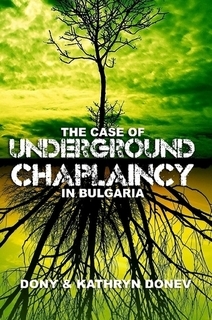 We began our literal journey of ministry on the high seas in 2009. After exploring the opportunity for several years’ prior and submitting applications to various chaplaincy organizations which dealt with such ministry, the doors finally opened for Cup and Cross.
We began our literal journey of ministry on the high seas in 2009. After exploring the opportunity for several years’ prior and submitting applications to various chaplaincy organizations which dealt with such ministry, the doors finally opened for Cup and Cross.
This search for a ministerial identity and its proper application in the real world coincided with the start of the Master’s in Chaplaincy Ministry Program which we designed for the Bulgarian Evangelical Theological Institute in Sofia around 2008-2009. The long standing relationships with professors, active military chaplains from various fields and countries, and the wisdom of several Generals in the field helped us calibrate our ministry focus with what is needed by real people in the real world.
The new fad “to be real” is not enough in a realistic ministry setting. When 25ft. high storm waves beat the aft and the ship is thrown towards the dark wall of ocean waters ahead, one cannot help but “to be real” and depend on a very real and skilled crew. A captain alone cannot run the boat through a storm even if all systems are reported working. It is the crew deep down in the engine room and making its way on the slippery deck that makes it all happen.
The Crew. Some of them have not seen their families for months or even a year at times. They struggle with the same fears and anxieties as the rest of us. Except, while the rest of us can hold on to something for dear life, the crew is obligated by duty to continue to serve and move the boat ahead. The little chapel on the top deck becomes a passage to a lagoon past the riffs of stormy life where stories are shared, prayers are lifted up together and human lives are reclaimed anew for Heaven.
We have found these nontraditional paths of travel and ministry yielding the most unique encounters and connections for Kingdom growth. Our family is thankful for these 10 years and looking forward to even more means of ministry outside of the four church walls. If you would like for us to come to your church as share our journey feel free to reach out to us.
Also important [click to read]:
- U.S. Department of State recognizes our chaplaincy efforts in Bulgaria
- Bulgarian Chaplaincy Association: Integration Proposal with Local NATO Programs
- Bulgarian Chaplaincy Association: Vision and Resolution
- Chronology of our role and involvement in developing Church of God chaplaincy in Bulgaria since 2001
- Master’s of Chaplaincy Ministry Program in Bulgaria Reflections
- The Past Decade of Chaplaincy in Bulgaria (2006-2016)
- Related Publications and Presentations by Cup & Cross Ministries International
More Publications on the Topic and History of Events:
- Chaplaincy Conference and Master’s of Chaplaincy
- Chaplaincy Course in Yambol, BULGARIA
- Bulgarian Chaplaincy Association Annual Meeting
- Family Seminar for Military Men and Women
- Cup & Cross Ministries in Church of God Publications
- The Case of a NATO Chaplaincy Model within the Bulgarian Army
- 10 Years of Military Ministry in Bulgaria
- National Chaplaincy Conference
- Bulgarian Chaplaincy Association Gains Legal Status
- Chaplain Dees Visits Bulgaria
- Chaplaincy Course at the Bulgarian Evangelical Theological Institute
- Bulgarian Chaplaincy Association
- Meeting the NATO Chaplain
- National Chaplaincy Meeting
- Chaplaincy Developments in Bulgaria
- U.S. Bases in Bulgaria
- National Chaplaincy Meeting
- Chaplaincy in Bulgaria
- HEALTHCARE CHAPLAINCY IN BULGARIA
- Chaplaincy in Bulgaria
- Mission Bulgaria


